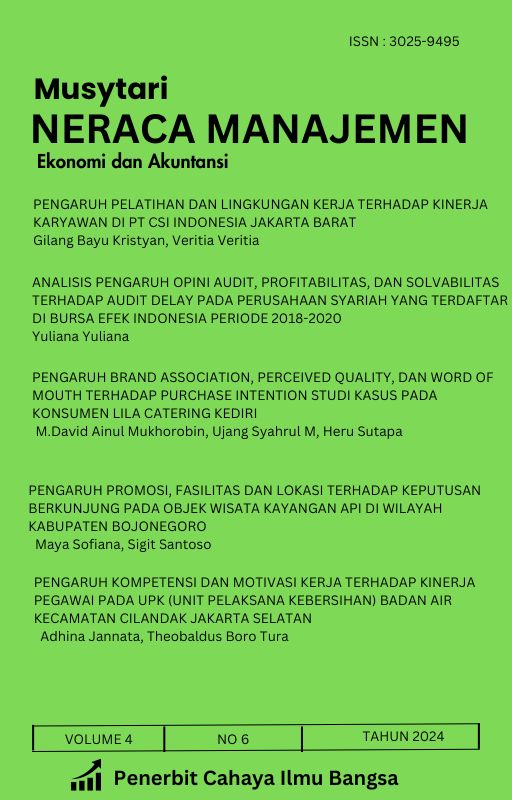STRATEGI EKONOMI NASIONAL INDONESIA DALAM MERESPONS DAMPAK PERANG DAGANG GLOBAL: PENGUATAN KEBIJAKAN TRANSISI ENERGI TERBARUKAN SEBAGAI SOLUSI ATAS ESKALASI TARIF LISTRIK DAN KETIDAKPASTIAN EKONOMI INTERNASIONAL
Published 2025-06-24
Keywords
- national economic strategy, global trade war, electricity tariff, renewable energy, government policy, energy transition, economic security.
How to Cite
Abstract
The prolonged global trade war, particularly between major powers such as the United States and China, has caused significant disruptions in global supply chains and triggered economic uncertainty. One of the most visible impacts of this conflict is the surge in global energy prices, which has led to increased electricity tariffs in many developing countries, including Indonesia. This rise has put pressure on both industrial and household sectors while also increasing inflation risks and weakening national economic competitiveness. In response, Indonesia has taken strategic steps by strengthening its energy transition policies, notably through Presidential Regulation No. 112 of 2022, which emphasizes the development of renewable energy as a long-term solution to the global energy crisis. This study, using a qualitative approach through literature review and policy analysis, explores Indonesia’s national economic strategy in facing the impact of global trade tensions. The findings reveal that Indonesia’s renewable energy strategy is built on three pillars: abundant natural resources (solar, wind, geothermal), strong political commitment to carbon reduction, and the involvement of international partners and private investors. The study recommends enhancing fiscal incentives, legal certainty, infrastructure development, and cross-sectoral collaboration. With these efforts, Indonesia has the potential not only to withstand global pressures but also to emerge as a resilient, sovereign, and sustainable green economy.
References
- A. Buku dan Literatur Akademik
- Mankiw, N. G. (2019). Principles of Economics (8th ed.). Cengage Learning.
- Krugman, P. R., & Obstfeld, M. (2018). International Economics: Theory and Policy (11th ed.). Pearson.
- Todaro, M. P., & Smith, S. C. (2015). Economic Development (12th ed.). Pearson.
- Sovacool, B. K. (2016). Energy, Ethics, and the Environment: The Promise and Peril of a Low-Carbon Future. Palgrave Macmillan.
- Yergin, D. (2006). The Prize: The Epic Quest for Oil, Money, and Power. Free Press.
- B. Jurnal Ilmiah
- Adzikri, F., Fatimah, N., & Suryani, I. (2021). Strategi Pengembangan Energi Terbarukan di Indonesia. Jurnal Ekonomi dan Kebijakan Publik, 12(1), 33–47. https://doi.org/10.22212/jekp.v12i1.2021
- Rahmawati, A., & Nugroho, Y. (2020). Transisi Energi Terbarukan di Tengah Ketidakpastian Global: Tinjauan Kebijakan di Indonesia. Jurnal Ilmu Sosial dan Ilmu Politik, 24(2), 214–231. https://doi.org/10.22146/jsp.2020.52433
- Putri, N. A., & Lestari, D. (2022). Dampak Perang Dagang AS-Tiongkok terhadap Ketahanan Ekonomi Negara Berkembang. Jurnal Global Strategis, 9(3), 112–124.
- C. Peraturan Perundang-undangan dan Dokumen Resmi
- Pemerintah Republik Indonesia. (2022). Peraturan Presiden Republik Indonesia Nomor 112 Tahun 2022 tentang Percepatan Pengembangan Energi Terbarukan untuk Penyediaan Tenaga Listrik.
- Kementerian Energi dan Sumber Daya Mineral. (2023). Rencana Umum Energi Nasional (RUEN) – Revisi 2023. Jakarta: Kementerian ESDM.
- Badan Pusat Statistik (BPS). (2023). Statistik Ekonomi Indonesia 2022. Jakarta: BPS.
- Kementerian Koordinator Bidang Perekonomian RI. (2022). Laporan Tahunan Ekonomi Makro dan Strategi Nasional Pemulihan Ekonomi 2021–2022.
- D. Laporan dan Sumber Internasional
- International Renewable Energy Agency (IRENA). (2023). Renewable Energy Market Analysis: Southeast Asia 2023. Abu Dhabi: IRENA. https://www.irena.org
- World Bank. (2021). Indonesia Economic Prospects: Boosting the Recovery. Washington, D.C.: World Bank Group.
- IEA (International Energy Agency). (2022). World Energy Outlook 2022. Paris: IEA. https://www.iea.org/reports/world-energy-outlook-2022
- UNCTAD. (2020). Global Trade Update: Implications of US-China Trade Tensions. Geneva: United Nations Conference on Trade and Development.

